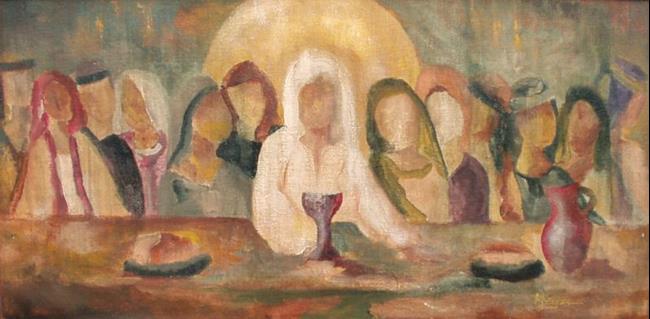Mark 14:12-21
It is the first day of the festival of the Unleavened Bread. The Passover lamb was being sacrificed. Everybody in Jerusalem is making arrangement to share this special meal together. And it is at this intimate gathering of Jesus and His followers that the Son of God drops a bombshell: “One of you will betray me!”
In my mind: I can almost hear the initial silence that followed; I can almost witness the shocked looks of dismay upon the faces of the 12. Mark says they were “grieved.” The word for this in Greek was lypein. It is used only twice in Mark… here of the disciples and of the rich young ruler who upon choosing not to follow Jesus who went away sad (lypein). It was a word that Mark chose to describe those who failed Jesus.
But wait! There was only one betrayer right? Was there only one? We know that all of the disciples at least thought that they were capable of such an act… hence their question: “Surely Not I?” And in verse 27 Jesus informs them: “You will all fall away, because it is written, ‘I will strike the shepherd, and the sheep shall be scattered.'”
Note the word “all.” Verse 23 says that they “all” shared the cup. Verse 31 states that they “all” confessed their allegiance to Christ. Verse 50 says that they “all” fled from Jesus at His arrest in the garden.
There was only one ultimate betrayer (Judas)… but by dawn “all” the disciples will betray him… if not because of greed… then due to weakness, fear or cowardice.
Often I wonder about Peter’s denials. I think: “How could he have done such a thing? He saw the transfiguration, he passed out the multiplied food at the feeding of the 5,000… he walked on the water with Jesus for goodness sake!”
And yet I wonder if “in the moment” I would have fared any better than Peter or the rest. You see their main problem was overconfidence in their faith. Peter swept his arm around the room: “Even if all else fail you, I will not!” The rest made their assurances as well. But it was all words. In the moment of truth they all headed for the hills!
Howard Hendricks remarks: “Peter’s problem was not insincerity. I think Peter meant exactly what he said. In fact, I seriously question if he was ever more sincere than he was on this occasion. …Peter’s problem was ignorance, and that’s your problem and mine. Whenever we say, ‘Lord, you can count on me,’ you’re about to step on a spiritual banana peel. You’re going to sprawl in the faith.'”
No, Christ cannot count on us. But praise God we can count on Him. The shepherd will indeed be struck down… the sheep will be scattered… but the Good Shepherd will die in order to unite his flock again. (v.28) Greater love has no man than this that He lay down his life for His friends. No greater love indeed!
Easter Blessings!





